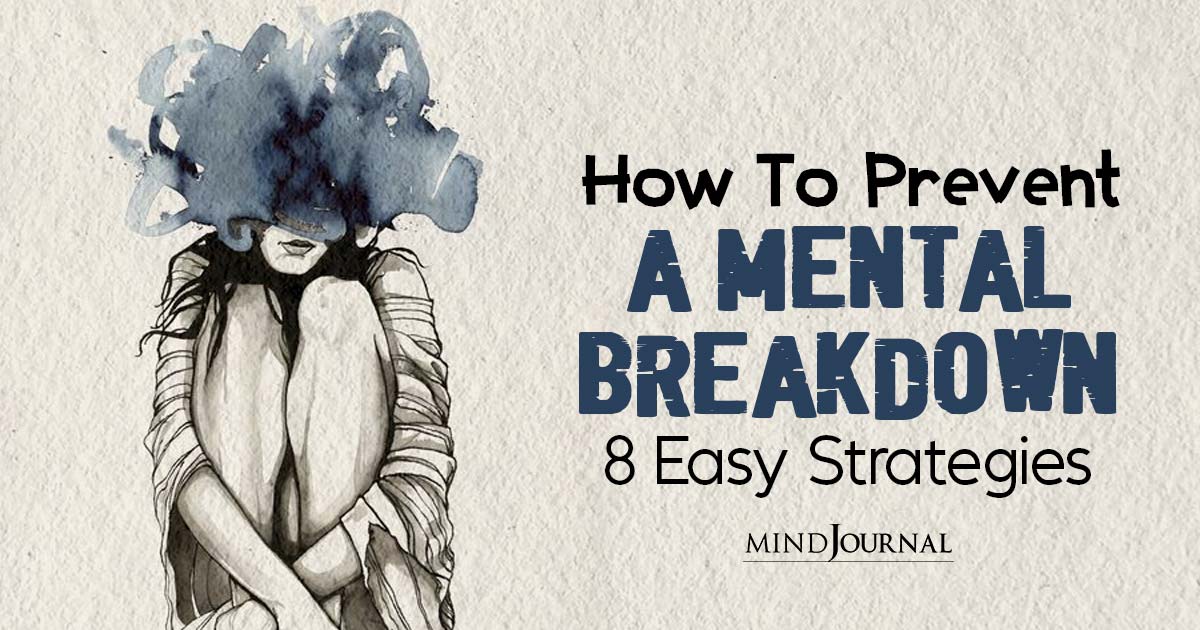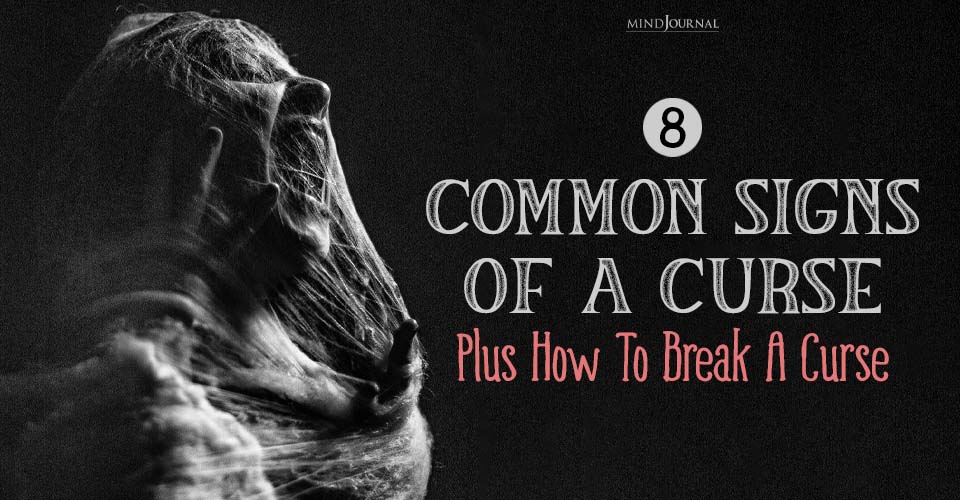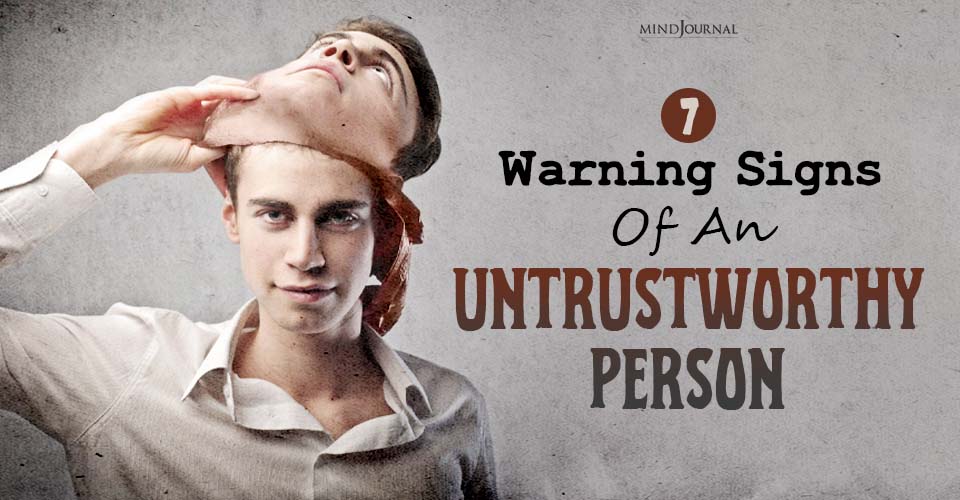In today’s fast-paced and demanding world, it’s essential to prioritize our mental health. Mental breakdowns can occur when we face excessive stress, overwhelming emotions, or a prolonged state of mental strain. So, how to prevent a mental breakdown?
In this article, we will explore eight useful and easy techniques that can help safeguard your mental well-being, and can go a long way in preventing mental breakdowns. By incorporating these strategies into your life, you can cultivate resilience, maintain a healthy mindset, and reduce the risk of reaching a breaking point.
Let’s explore some of the best methods if you are wondering how to avoid mental breakdowns.
Related: 11 Scary Symptoms of A Nervous Breakdown
How To Prevent A Mental Breakdown: 8 Useful And Easy Strategies
1. Prioritize Self-Care
Self-care is the foundation of mental well-being. Taking care of yourself physically, emotionally, and mentally can significantly go a long way in preventing mental breakdowns.
Here are some key self-care practices to consider:
- Establish a healthy routine: Maintaining a consistent sleep schedule, eating nutritious meals, and exercising regularly can improve your overall well-being and also make you feel happier.
- Practice stress management: Include stress-reducing activities such as meditation, deep breathing exercises, yoga, or spending time in nature, so that you feel mentally and emotionally at peace.
- Set boundaries: Learn to say no when needed and avoid overextending yourself. Establishing boundaries in relationships and work can protect you from burning out, and taking on excessive stress and pressure.

2. Build A Strong Support System
How to avoid mental breakdowns?
Having a strong support system in life is crucial for maintaining mental resilience. Cultivating healthy relationships and seeking support when needed can make a significant difference to your mental health and can go a long way in preventing mental breakdowns.
Consider the following strategies if you are thinking about how to prevent a mental breakdown:
- Foster positive connections: Surround yourself with supportive and understanding people who genuinely love you and who uplift you. Participate in activities that make you happy and give you a sense of meaning or join groups that share the same interests as you.
- Seek professional help: If you’re feeling overwhelmed or struggling with your mental health, don’t hesitate to reach out to a mental health professional. They will help and guide you in the best way possible.
3. Practice Mindfulness And Relaxation Techniques
Mindfulness and relaxation techniques can help calm your mind, reduce anxiety, and promote emotional well-being.
Try out these strategies everyday and see a notable difference in your life:
- Mindful meditation: Set aside a few minutes each day to practice focused breathing and present-moment awareness. This can help alleviate stress and increase mental clarity.
- Progressive muscle relaxation: This technique involves systematically tensing and relaxing different muscle groups in the body, promoting physical and mental relaxation.
- Engage in hobbies: Pursuing activities you enjoy, such as painting, playing an instrument, or gardening, can serve as a form of relaxation and provide a sense of fulfilment.
Related: 10 Inspirational Mental Health Podcasts That You Must Not Miss At Any Cost
4. Manage Stress Effectively
Stress is a common trigger for mental breakdowns. So, if your aim is preventing mental breakdowns then learning to manage stress effectively can greatly reduce its impact on your mental health.
Consider the following strategies:
- Manage your time properly: Arrange tasks by importance, establish achievable objectives, and divide them into smaller, actionable stages. This approach will help you stay organized and reduce feelings of overwhelm.
- Practice healthy coping mechanisms: Instead of turning to unhealthy habits like excessive alcohol consumption or emotional eating, explore healthier coping mechanisms such as journaling, talking to a friend, or engaging in physical exercise.
- Take regular breaks: Allow yourself time to rest and recharge throughout the day. Short breaks can help alleviate stress and improve focus and productivity.
5. Cultivate a Positive Mindset
A positive mindset can really help you feel better and happier mentally and emotionally, and can even make you mentally resilient.
If you are thinking about how to avoid mental breakdowns then you should definitely try out these strategies to foster a more positive outlook in life:
- Be grateful everyday: Be grateful for what you have and reflect on all the positive things your life consists of everyday. Practicing gratitude pushes you to look at the good things in life, instead of constantly focusing on the negative ones.
- Challenge negative thoughts: Don’t let negative self-talk get you down. Identify them, banish them, and train your brain to have a more positive and perspective.
- Surround yourself with positivity: Consume uplifting content, read inspiring books, or listen to motivational podcasts. Surrounding yourself with positivity can influence your mindset positively.

6. Establish Healthy Boundaries
Setting boundaries is essential for maintaining mental and emotional well-being. And having strict personal boundaries should be non-negotiable because having boundaries will protect you from many toxic behaviors and problematic people.
Here’s how you can establish healthy boundaries:
- Know your limits: Reflect on your personal values, needs, and limitations. Identify what is acceptable and what is not in your relationships and daily interactions.
- Be assertive when communicating with others: Don’t be scared to let your boundaries be known. Learn to say no when needed without feeling like a bad person.
7. Practice Emotional Regulation
If you are wondering how to prevent a mental breakdown, this is one of the most powerful things you can do.
Emotional regulation skills are crucial for preventing a mental breakdown. By learning to identify and manage your emotions, you can navigate challenging situations with greater resilience and reduce the risk of overwhelming stress.
Here are some techniques to help regulate your emotions effectively:
- Identify and label emotions: Recognize and acknowledge your emotions as they arise. This self-awareness is the first step towards effective emotional regulation.
- Practice deep breathing: Engage in slow, deep breaths to activate your body’s relaxation response and calm heightened emotions.
- Engage in self-reflection: Take time to understand the root causes of your emotions. This can help you respond to them more effectively and make healthier choices.
Related: 10 Signs It’s Not Your Body But Your Soul That’s Tired
8. Seek Professional Help When Needed
How to prevent a mental breakdown? Professional help can help tremendously!
If you find yourself consistently struggling with your mental health or experiencing symptoms of a breakdown, don’t be scared or embarrassed to seek professional help.
Mental health professionals are equipped to provide you with all the necessary support, guidance, and interventions you need, and their treatment methods will always be tailored to your specific needs.
Don’t hesitate to reach out to a therapist, counsellor, or psychiatrist who can assist you on your journey towards mental well-being.

Takeaway
Preventing mental breakdowns requires proactive effort and a commitment to self-care. By implementing the strategies outlined in this article, such as prioritizing self-care, building a support system, practicing mindfulness, managing stress effectively, cultivating a positive mindset, establishing healthy boundaries, practicing emotional regulation, and seeking professional help when needed, you can significantly reduce the risk of reaching a breaking point.
Remember, your mental health matters, and taking steps to protect it is a valuable investment in your overall well-being. Start incorporating these strategies into your daily life and enjoy the benefits of a healthier and more resilient mind.
Related: 15 Simple Ways You Can Boost Your Emotional Health
Note: This article provides general information and suggestions. If you or someone you know is experiencing severe mental distress or crisis, please reach out to a mental health professional or helpline immediately.










Leave a Reply